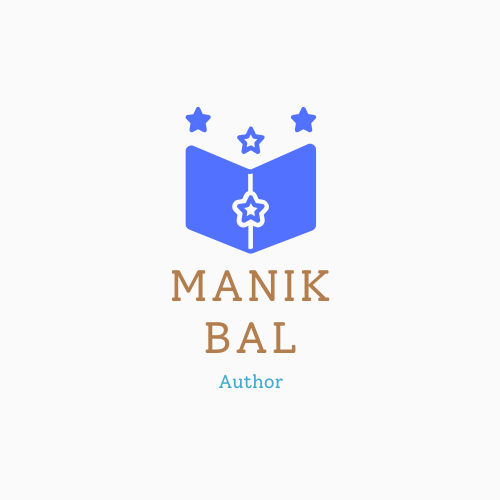In a world that often feels chaotic and overwhelming, the search for tranquility and clarity becomes paramount. Many individuals turn to various forms of meditation to find solace, yet one of the most profound and accessible methods lies in the act of writing. Writing, in its essence, can be a meditative practice that allows us to delve deep into our thoughts, emotions, and experiences.
It serves as a bridge between our inner landscapes and the external world, offering a sanctuary where we can explore our consciousness without judgment. This connection between writing and meditation is beautifully articulated in the works of Natalie Goldberg, who has dedicated her life to teaching others how to harness the power of words as a means of self-discovery and mindfulness. Goldberg’s perspective on writing as a meditative practice resonates with many who have experienced the cathartic release that comes from putting pen to paper.
Just as traditional meditation encourages us to focus on our breath or a mantra, writing invites us to immerse ourselves in the flow of our thoughts. It allows us to observe our mental chatter, confront our fears, and celebrate our joys—all while cultivating a sense of presence. In this way, writing becomes not just an act of communication but a journey inward, where we can uncover layers of ourselves that may have remained hidden in the hustle and bustle of daily life.
Key Takeaways
- Writing can be a form of meditation, allowing individuals to quiet the mind and focus on the present moment.
- The practice of writing as a meditative activity involves cultivating mindfulness and presence in the act of writing.
- Writing as a meditative practice can bring numerous benefits, including stress reduction, increased self-awareness, and improved creativity.
- Natalie Goldberg’s “Wild Mind” offers valuable insights into the connection between writing and meditation.
- Techniques and exercises for writing meditation can help individuals tap into their inner thoughts and emotions, fostering self-reflection and insight.
The Practice of Writing as a Meditative Activity
Embracing Writing as a Meditative Practice
Engaging in writing as a meditative activity requires intention and openness. It is not merely about crafting perfect sentences or adhering to grammatical rules; rather, it is about allowing thoughts to emerge freely and authentically. When we approach writing with a meditative mindset, we create a space where creativity can flourish without the constraints of self-doubt or criticism.
To begin this practice, one might set aside a specific time each day dedicated solely to writing. This ritual can serve as a grounding moment, akin to lighting a candle before meditation.
Preparing for a Meditative Writing Experience
As we settle into our writing space, we can take a few deep breaths, centering ourselves in the present moment. With each inhale, we invite clarity; with each exhale, we release distractions. This simple act of preparation transforms writing into a sacred practice, allowing us to connect with our inner voice and explore the depths of our thoughts.
Exploring the Concepts of Mindfulness and Presence in Writing

Mindfulness is at the heart of both meditation and writing. It involves being fully present in the moment, observing our thoughts without judgment or attachment. When we write mindfully, we cultivate an awareness of our inner dialogue and the emotions that accompany it.
This heightened state of consciousness allows us to engage with our writing on a deeper level, revealing insights that may have otherwise gone unnoticed. In “Wild Mind,” Natalie Goldberg emphasizes the importance of presence in writing. She encourages writers to immerse themselves in their surroundings, drawing inspiration from the world around them.
By paying attention to the sights, sounds, and sensations that fill our environment, we can infuse our writing with authenticity and richness. This practice not only enhances our creative expression but also fosters a sense of connection to the present moment—a key aspect of mindfulness. As we write with intention and awareness, we begin to notice patterns in our thoughts and emotions.
We may uncover recurring themes or unresolved feelings that surface during our writing sessions. This process of exploration can be both enlightening and therapeutic, allowing us to confront aspects of ourselves that we may have been avoiding. In this way, writing becomes a powerful tool for self-discovery, inviting us to embrace our vulnerabilities and celebrate our strengths.
The Benefits of Writing as a Meditative Practice
The benefits of incorporating writing into our meditative practices are manifold. Firstly, writing serves as an emotional release, providing an outlet for pent-up feelings and thoughts. When we express ourselves on paper, we create space for healing and reflection.
This cathartic process can alleviate stress and anxiety, allowing us to approach life with greater clarity and calmness. Moreover, writing enhances our self-awareness. As we engage in this practice regularly, we develop a deeper understanding of our motivations, desires, and fears.
This newfound awareness empowers us to make conscious choices aligned with our true selves. We become more attuned to our emotions and reactions, fostering healthier relationships with ourselves and others. Additionally, writing as a meditative practice can improve our focus and concentration.
In an age filled with distractions, dedicating time to write allows us to hone our ability to concentrate on a single task. This skill not only benefits our writing but also translates into other areas of our lives, enhancing productivity and creativity.
Review of Natalie Goldberg’s “Wild Mind”
Natalie Goldberg’s “Wild Mind” is a treasure trove for anyone seeking to explore the intersection of writing and meditation. In this book, Goldberg shares her insights on how writing can be a path to self-discovery and mindfulness. Her warm and inviting prose encourages readers to embrace their unique voices while navigating the complexities of their inner worlds.
One of the standout features of “Wild Mind” is Goldberg’s ability to demystify the writing process. She dispels the notion that writing must be perfect or polished from the outset; instead, she champions the idea that raw expression is where true creativity lies. This perspective resonates deeply with those who may feel intimidated by the act of writing or fear judgment from others.
Goldberg’s anecdotes and exercises throughout the book serve as practical guides for readers looking to incorporate writing into their meditative practices. She emphasizes the importance of freewriting—allowing thoughts to flow onto the page without inhibition—as a means of accessing deeper layers of consciousness. This technique not only fosters creativity but also cultivates a sense of freedom that is often elusive in other areas of life.
Techniques and Exercises for Writing Meditation

To fully embrace writing as a meditative practice, one can explore various techniques and exercises designed to enhance mindfulness and creativity. One effective method is freewriting—a practice where individuals write continuously for a set period without worrying about grammar or structure. This exercise encourages spontaneity and allows thoughts to flow freely onto the page.
By focusing on what we see, hear, smell, taste, and touch, we ground ourselves in the present moment and create vivid imagery in our writing. This practice not only enhances descriptive skills but also deepens our connection to the world around us.
Additionally, incorporating prompts into your writing practice can spark inspiration and encourage exploration. Prompts can range from simple phrases like “Today I felt…” to more complex questions such as “What does home mean to me?” These guiding questions invite introspection and allow writers to delve into their thoughts and emotions with curiosity.
How Writing Can Foster Self-Reflection and Insight
Writing has an innate ability to foster self-reflection and insight. As we put pen to paper or fingers to keyboard, we create a dialogue with ourselves—a conversation that can lead to profound revelations about our lives and experiences. This process encourages us to examine our beliefs, values, and motivations more closely.
Through reflective writing, we can identify patterns in our behavior or thought processes that may be holding us back. By acknowledging these patterns on paper, we gain clarity about what serves us and what no longer aligns with our true selves. This newfound awareness empowers us to make conscious choices that promote growth and healing.
Moreover, writing allows us to document our journeys—both the triumphs and challenges—creating a narrative that helps us make sense of our experiences. As we revisit these writings over time, we can observe how we’ve evolved and gained insight into ourselves. This practice not only fosters personal growth but also cultivates gratitude for the lessons learned along the way.
Embracing Writing as a Path to Inner Peace
In conclusion, embracing writing as a form of meditation opens up new avenues for self-discovery, mindfulness, and emotional healing. As we engage in this practice with intention and presence, we cultivate a deeper connection with ourselves and the world around us. Natalie Goldberg’s “Wild Mind” serves as an invaluable guide on this journey—encouraging us to explore the wildness within while finding peace through the written word.
By integrating writing into our daily lives as a meditative practice, we create space for reflection, creativity, and growth. The benefits are profound: enhanced self-awareness, emotional release, improved focus, and ultimately, a greater sense of inner peace. As we navigate life’s complexities through the lens of writing, we discover that each word penned is not just an expression but an invitation to connect with our truest selves—a journey worth embarking upon for anyone seeking solace in this fast-paced world.
In exploring the therapeutic aspects of writing, Natalie Goldberg’s “Wild Mind” offers profound insights into how the practice can serve as a form of meditation. For those interested in delving deeper into the personal benefits and emotional catharsis that writing can provide, a related article on this topic can be found at What Do You Get Out of Writing Fiction?. This piece discusses the personal fulfillment and psychological benefits derived from crafting stories, complementing the themes presented in Goldberg’s work.





0 Comments